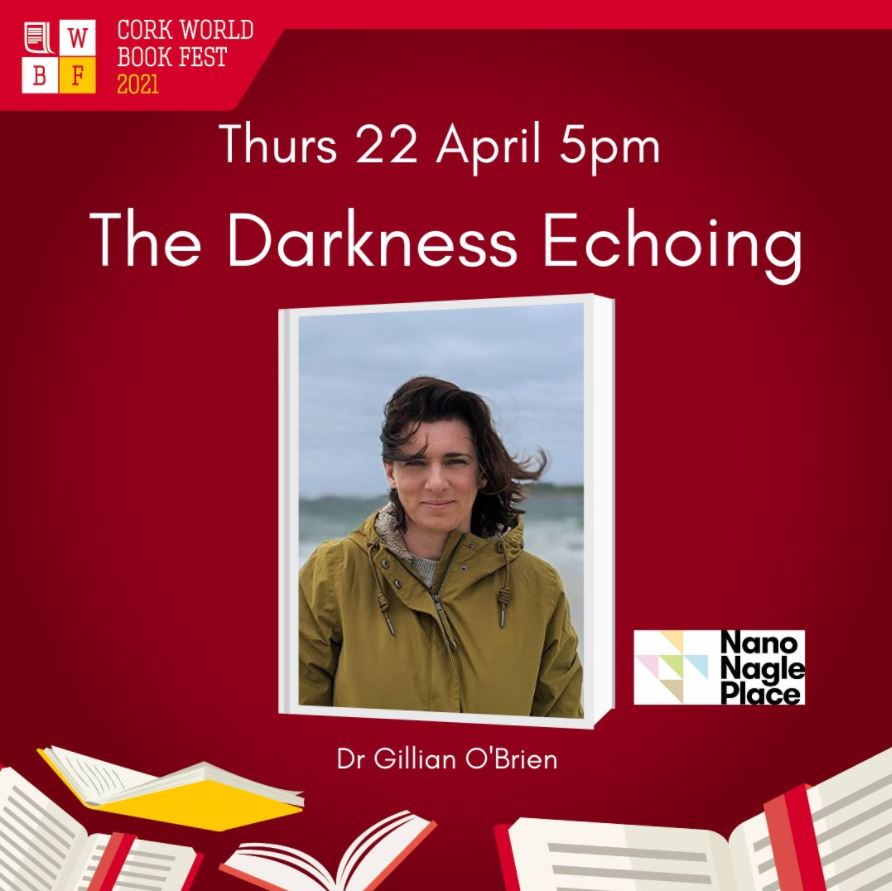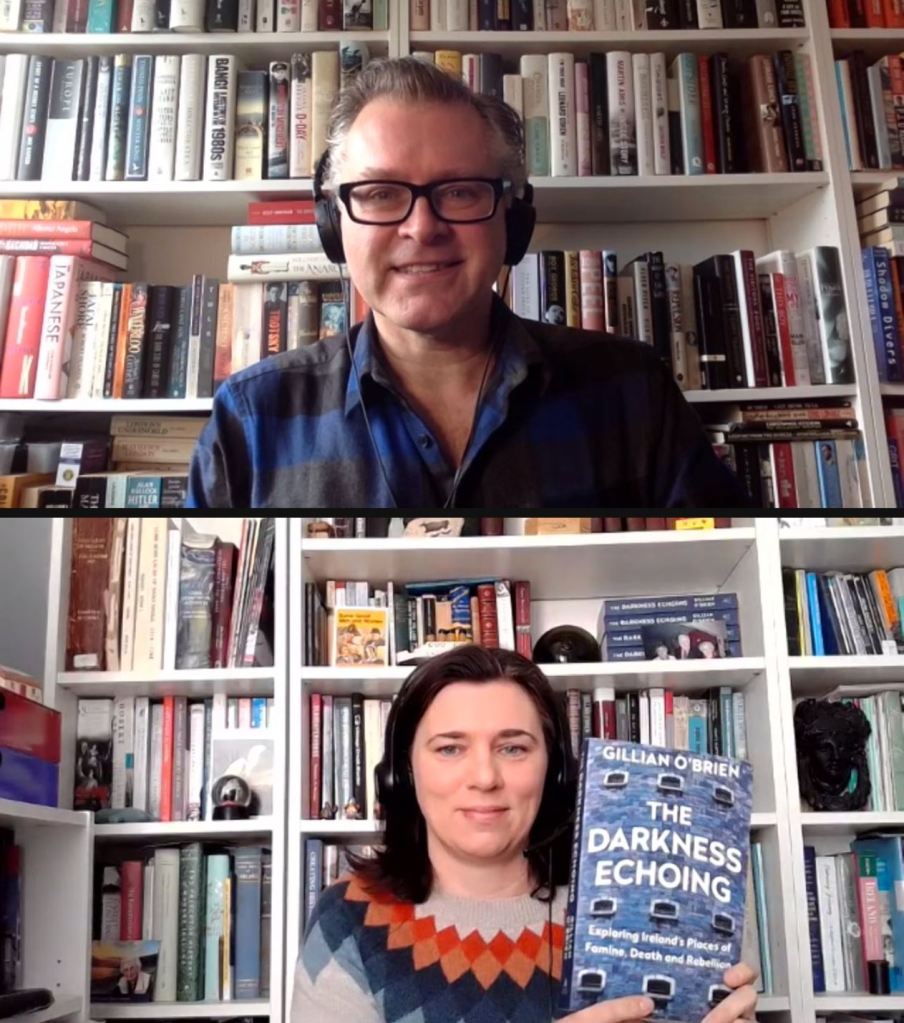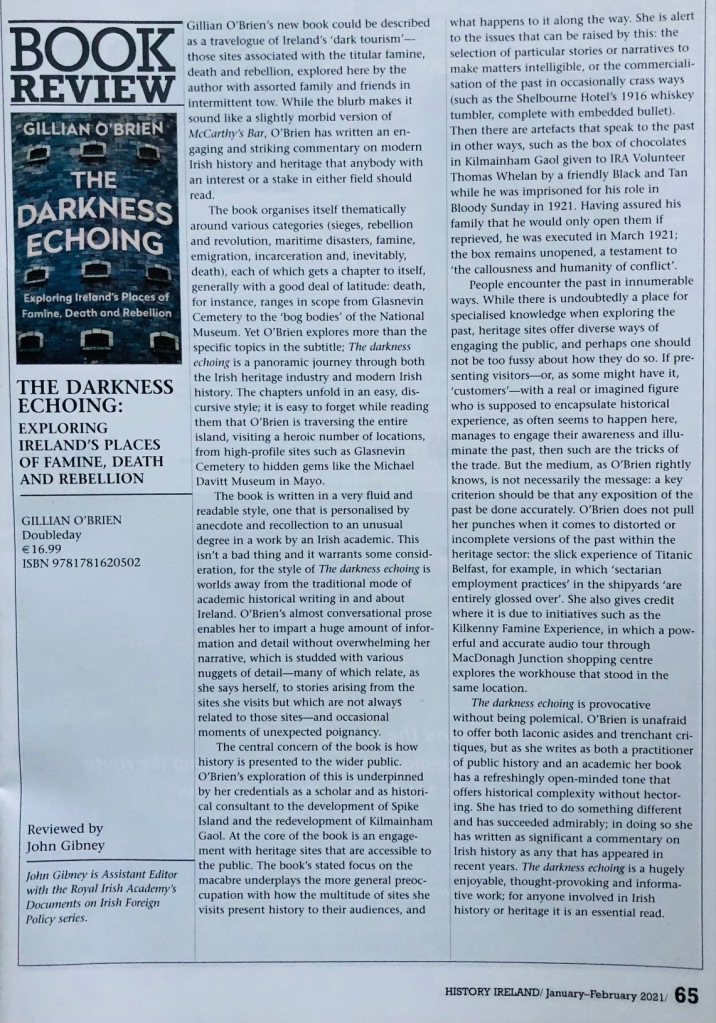On Thursday at 5.00pm I’ll be chatting to Danielle O’Donovan about writing The Darkness Echoing: Exploring Ireland’s Places of Famine, Death & Rebellion as part of Cork World Book Fest. We’ll be talking about Dark Tourism and the Irish tendency to focus on the bleak and miserable aspects of our past. Why do we love going to prison museums and graveyards as part of a ‘fun’ day out? Why do we talk about death and funerals as easily as we talk about the weather?
As part of my research for The Darkness Echoing I visited over 200 museums and historic sites across Ireland. I’ll also chat to Danielle about some of the well-known (and not so well-known) sites so you can get planning trips just as soon as that’s allowed!
The talk is free and open to all but you need to register to attend. Click here to register: Cork World Book Fest Event




